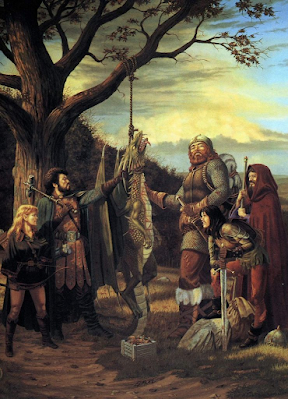White Box: Cyclopedia Review

OSR Stalwart James Spahn kickstarted White Box: Cyclopedia this summer and raised a whopping 50k. I missed it and have now paid 25 dollars for the pdf, when I could have paid 15 in the summer. It's a 290 page product and let me start by saying it's a ridiculous game. I mean this in the best possible way. The idea of a 290 page rulebook with "whitebox" appended is of course in itself a ridiculous notion - whitebox is D&D shaved to the bone, so what can a "Cyclopedia" edition of such a game possibly be if not the antithesis of whitebox? It's not though. What it is, is the OSR from its loveliest side. Not artpunk reinterpretations or pushing-the-limit [color] hacks on just how lite an RPG can be and still be an RPG. It's about loving the old games and applying your craft, experience and creativity to that; flexing your DM moves in a blog or forum post for others to +1 and say "stolen!". With the Whitebox Cyclopedia, James has flexed all h...



